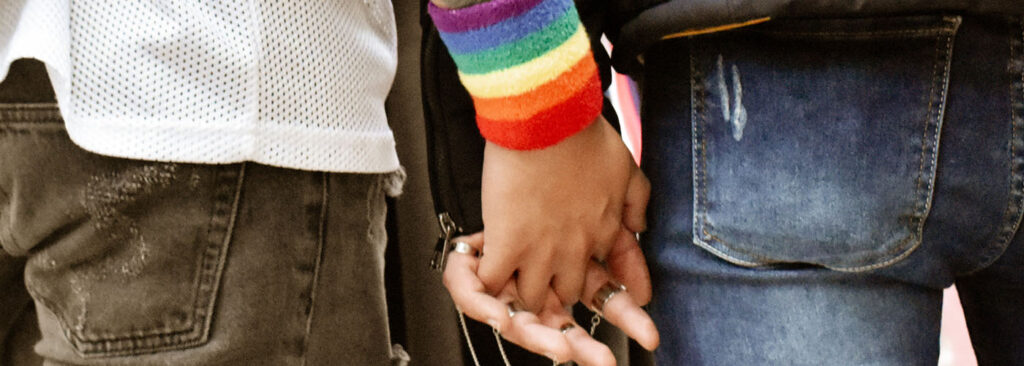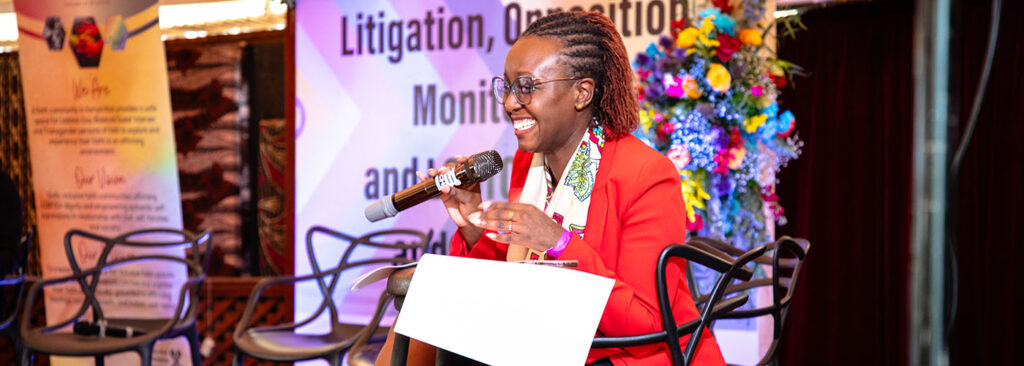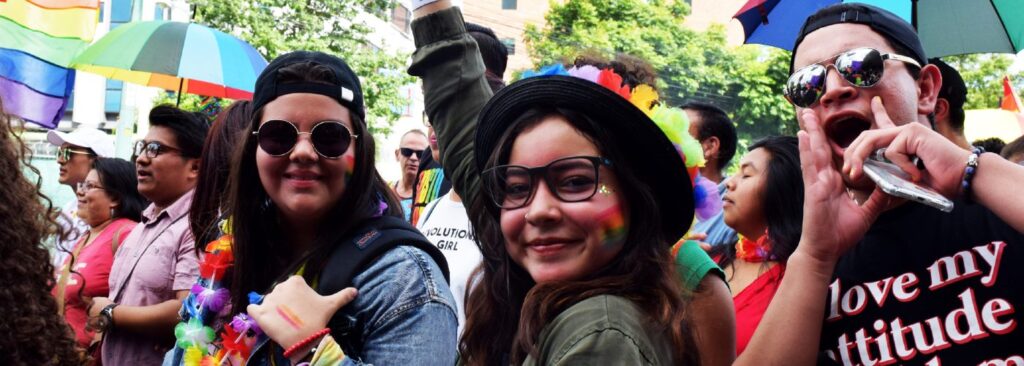“At home, we call our father the Taliban of the family,” says Kimani from Kenya. “Everyone was afraid of him. My brother and I would hide when he came home. We were afraid of his anger and harsh punishments.” Being the older one, Kimani felt the pressure of responsibility for himself and his younger brother. There was no room for emotions. You couldn’t afford to make a mistake. But Kimani was pretty shocked when he found out that his brother was gay.
He searched for an explanation. “I thought, as an older brother, I had done something wrong. Or maybe it was because of my father’s bizarre behavior?” Whatever it was, Kimani wanted to “solve the problem,” which he saw as his brother’s homosexuality.
He spoke with friends and village elders to find out how to cure his brother of his “gay demon.” Kimani eventually ended up at one of the sessions we organize with our partner, the Global Interfaith Network. They involve conversations that increase connection and understanding and eliminate prejudice. Kimani actually began to change his view of homosexuality.
Conversations about acceptance
Our Free to be Me program works to combat discrimination against LGBTIQ+ people in various ways. We conduct campaigns, support queer activists in danger, try to influence policy, and work to change public opinion. This last step usually starts small: intimate and often difficult conversations with family members and religious leaders. When they speak out against discrimination, it can be the beginning of change in a community and eventually public opinion.
When Kimani walked in, he was anything but comfortable. “I made sure I had no physical contact with anyone in the room. Not even a handshake with the person next to me. I was afraid they would infect me with homosexuality,” he admits.
During the sessions, Kimani started seeing himself in the stories of other participants. He heard how people who, like him, were homophobic were still able to accept their homosexual family members. Looking back, Kimani laughs. “I was so open to misinformation. Homosexuality isn’t contagious—and it’s not something that needs to be cured, either.”
A secret pact
Although his path wasn’t easy, and he had to confront his assumptions and fears, Kimani decided to support his brother. This led to a secret pact. Their father wanted the younger brother to become a car mechanic, much against his will. His true passion was hospitality training. To avoid further conflict, the brothers decided he would follow car mechanic training while they both secretly saved money for him to go to hospitality school later.
As a street vendor, Kimani sees his city pass by daily. He’s proud of the countless times he’s stood up for people getting attacked because others assumed they were queer. He now shares his knowledge and speaks about the deep-seated prejudices stemming from religion and social and cultural norms. Once homophobic, Kimani is now an outspoken ally of queer Kenyans. “I’m determined to ensure my brother has the future he deserves,” he explains.
A new solidarity group
It’s stories like Kimani’s that have led us to take a more family-based approach to our support for LGBTIQ+ people in our Free to be Me program.
In Kenya, activists, progressive religious allies, and family members of queer people have come together to form a solidarity group. The organization is now in the process of officially registering. This is unique. It’s the first time all these groups—each with their own perspective and experience—are working together. This allows us to engage with family members, combat ignorance, shift public opinion, support queer people in need, and work together to improve legislation.
This initiative was actually founded by the parents and family members of LGBTIQ+ people. Their involvement proved crucial and convinced others to join.
Free to Be Me
Our Free to be Me program works in 12 countries to improve the socioeconomic position of LGBTIQ+ people. We support the community in advocating for fair laws and regulations and work to influence public opinion.
This is important because we see that discrimination fosters inequality from an early age. LGBTIQ+ people are more likely to drop out of school, have more difficulty finding jobs, and often can’t be themselves at work. That’s why we’re committed to tackling the inequality and exclusion they face.








